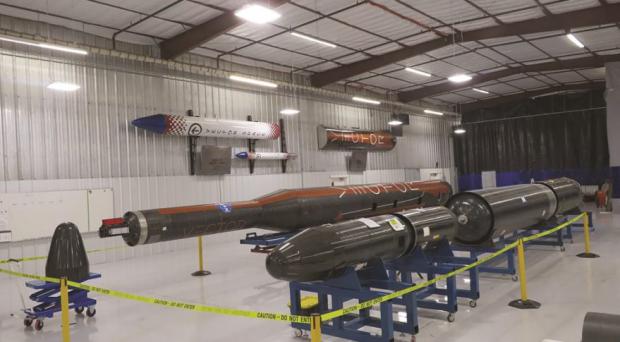
Breaking News
 Is the White House Actually the Overlook Hotel East?
Is the White House Actually the Overlook Hotel East?
 QatarEnergy Declares Force Majeure As One-Fifth Of Global LNG Supply Goes Dark
QatarEnergy Declares Force Majeure As One-Fifth Of Global LNG Supply Goes Dark
 Primary Losers: Crockett Cries 'Disenfranchisement', Crenshaw Crushed
Primary Losers: Crockett Cries 'Disenfranchisement', Crenshaw Crushed
 U.S. Submarine Sinks Iranian Warship In First Torpedo Kill Since WWII
U.S. Submarine Sinks Iranian Warship In First Torpedo Kill Since WWII
Top Tech News
 US particle accelerators turn nuclear waste into electricity, cut radioactive life by 99.7%
US particle accelerators turn nuclear waste into electricity, cut radioactive life by 99.7%
 Blast Them: A Rutgers Scientist Uses Lasers to Kill Weeds
Blast Them: A Rutgers Scientist Uses Lasers to Kill Weeds
 H100 GPUs that cost $40,000 new are now selling for around $6,000 on eBay, an 85% drop.
H100 GPUs that cost $40,000 new are now selling for around $6,000 on eBay, an 85% drop.
 We finally know exactly why spider silk is stronger than steel.
We finally know exactly why spider silk is stronger than steel.
 She ran out of options at 12. Then her own cells came back to save her.
She ran out of options at 12. Then her own cells came back to save her.
 A cardiovascular revolution is silently unfolding in cardiac intervention labs.
A cardiovascular revolution is silently unfolding in cardiac intervention labs.
 DARPA chooses two to develop insect-size robots for complex jobs like disaster relief...
DARPA chooses two to develop insect-size robots for complex jobs like disaster relief...
 Multimaterial 3D printer builds fully functional electric motor from scratch in hours
Multimaterial 3D printer builds fully functional electric motor from scratch in hours
 WindRunner: The largest cargo aircraft ever to be built, capable of carrying six Chinooks
WindRunner: The largest cargo aircraft ever to be built, capable of carrying six Chinooks
Vector restarting operations under new ownership

WASHINGTON — Vector, a small launch vehicle developer that went bankrupt in 2019, is getting a second chance under new ownership, with changes to both its technology and initial markets.
Vector has raised more than $100 million to develop a family of small launch vehicles, but suspended operations in August 2019 and laid off most of its employees after one of its key investors pulled out. The company filed for Chapter 11 bankruptcy in December and later decided to sell its assets.
Vector's satellite assets, called GalacticSky, were acquired by Lockheed Martin in February for $4.25 million. Vector's launch assets were sold in May to an entity known as TLS Bidco LLC for $1.175 million, according to bankruptcy court filings.
The new owner of Vector's launch assets is a consortium led by John Moran, president and chief executive of Moran Logistics, a shipping company based in Pennsylvania. They are restarting Vector with Robert Spalding, a retired Air Force brigadier general who previously served on the staff of the National Security Council, as chief executive.
Spalding said in an interview he had been familiar with the original Vector during his time at the White House because of his work at the time on developing secure 5G networks. After leaving government service, he started up a 5G company and talked with Vector about supporting those plans. He kept in contact with Vector after it filed for Chapter 11 and convinced investors to purchase the assets.
"We thought there was tremendous value. They had invested $100 million in trying and failing," he said, citing the facilities and infrastructure it developed. "There was a lot of things that they had done right, and there's just a few things that they had done wrong."

 RNA Crop Spray: Should We Be Worried?
RNA Crop Spray: Should We Be Worried?

